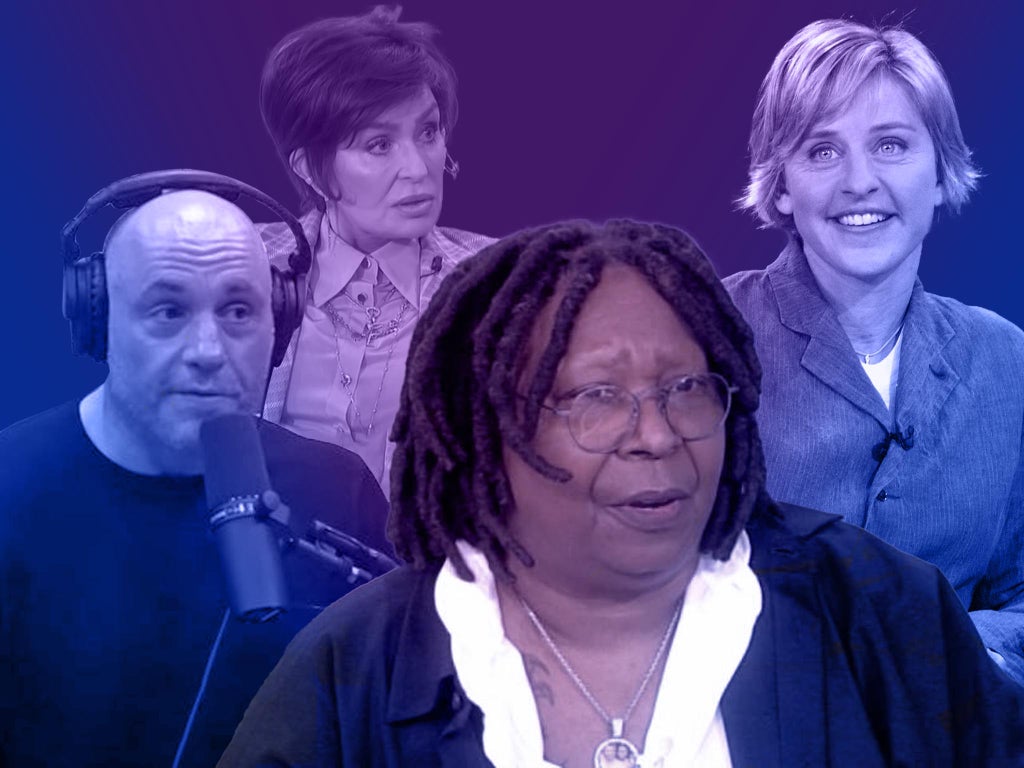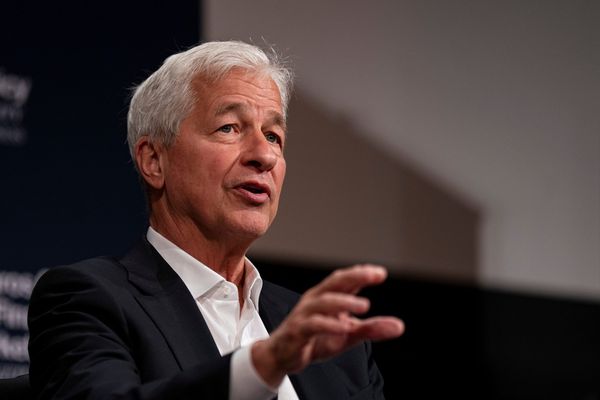
Sometimes it feels as if we live in an era of never-ending outrage. Every week seems as if it brings a new celebrity scandal, someone off the TV letting slip something racist, bigoted or otherwise offensive. They face a new kind of “due process”: castigation on social media, followed by an apology (or else a doubling-down and shouts of “cancel culture!”). Then, whenever their name is mentioned for the next weeks/months/years (depending on the severity), a reminder of the transgression will echo around. It’s said that everything is ephemeral in the digital age, but the wrong words can still stick like mud. Earlier this week, the actor and talk show presenter Whoopi Goldberg found herself at the centre of one such controversy, after suggesting on her American TV series The View that the Holocaust “wasn’t about race”. “These are two white groups of people,” she said at the time. She then addressed the remarks during an appearance on The Late Show, telling host Stephen Colbert: “As a Black person, I think of race as being something that I can see.” Goldberg apologised on Twitter, writing that she was “sorry for the hurt I have caused”. The View’s network, ABC, subsequently announced that she would be suspended from the series for two weeks.
The whole incident has, at least, opened the floor to some useful public discourse about the nature of antisemitism, such as this widely circulated speech by David Baddiel. But it’s still a grim example of just what can happen when talk show hosts underestimate the power their platform holds, and the sense of responsibility that should accompany it. (Last year, The View became the most-watched daytime talk show in the US, averaging 2.74 million total viewers every episode.) Ever one to make an issue all about himself, Piers Morgan jumped at the chance to contrast Goldberg’s short suspension with Sharon Osbourne’s firing from another American chat show, The Talk. Osbourne left the show last year after speaking out in defence of Morgan, who was caught up in his own scandal and had parted ways with the British talk show Good Morning Britain. (The furore concerned Morgan’s on-air rant about Meghan Markle, in which he suggested he disbelieved her claims that she experienced suicidal thoughts.)
Problematic celebrity outbursts are by no means confined to the world of talk shows. But there’s something about the format that is particularly conducive to controversy. With most celebrities, there is some level of separation between the art and the artist. You can still love the music of Van Morrison even if you don’t agree with his outspoken views on Covid; you can still enjoy Sean Penn’s performance in Licorice Pizza even if you think his comments about gender sound like the ravings of an incoherent bigot. A common refrain hurled at any actor/musician who speaks up about politics is that they should “stick to acting/playing music”. This is wrong, of course – they have as much right to speak their minds as everyone else – but it does attest to the modern celebrity’s unsteady role in the mind of the public. Are these people who should be listened to, or simply indulged for their work then ignored? For many people, it’s often more the latter. In the sphere of daytime talk shows, however, it’s a bit different. Where late-night talk shows, ostensibly the daytime genre’s more illustrious sibling, have all but devolved into a platform for breezy half-true dinner party anecdotes, daytime shows are more concerned with real-world topics. The fact is that people like Goldberg and Osbourne wield enormous influence when they appear on these programmes. It’s not just down to the number of people watching but the reason why they’re watching. People don’t engage with talk shows because they want news or escapism. They watch because they want to hear opinions. They want “takes”. When featuring on The View, Goldberg stops being just another actor and becomes an implicit authority on whatever subject is being discussed.
This is part of why there was such outrage over Piers Morgan’s Meghan Markle comments on GMB last year. As Ofcom eventually ruled, broadcasting the comments did not violate any guidelines. “The code allows for individuals to express strongly held and robustly argued views, including those that are potentially harmful or highly offensive,” wrote the watchdog. Morgan was entitled to an opinion, and he sure as hell gave it voice. But this doesn’t change the fact that his position as a presenter afforded him an innate authority with many GMB viewers.
It’s a similar problem that sits at the heart of the ongoing outrage facing Spotify and its The Joe Rogan Experience podcast. The streaming service has been condemned for exclusively hosting the talk series, in which Rogan and his guests have espoused debunked and inaccurate claims relating to Covid-19 and vaccines. More so than many talk show hosts, Rogan tends to let his interviewees drive the direction and agenda of episodes. But we shouldn’t overlook his own function as a mouthpiece; the comedian has a huge, devoted following of listeners who take his opinions all too seriously. Accountability cannot be allowed to fall solely on the guest – or worse, the listener.
For Ellen DeGeneres, the trust between audience and host has actually worked against her. When her show was in the throes of a PR crisis last year following allegations of a “toxic” work environment, the primary grievance for many viewers was not the celebrity’s reported mistreatment of staff, but the fact that this seemed to contradict DeGeneres’s relentlessly sunny onscreen persona. Fronting a successful chat show is not like taking on an acting role. It’s a micro-cult of personality, built around a real person. And people are nothing if not fallible.
If you’re presenting a series several days a week for years on end, you’re going to inevitably make mistakes. It’s only human. But there are mistakes which are innocuous, and others which have the potential to lead to serious real-world harm. Goldberg and her ilk would do well to remember just how much power they hold.







